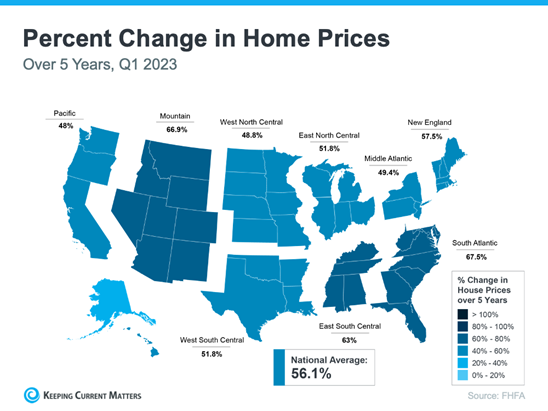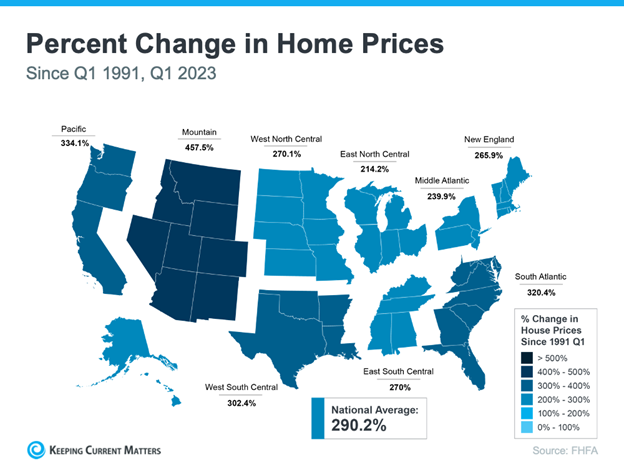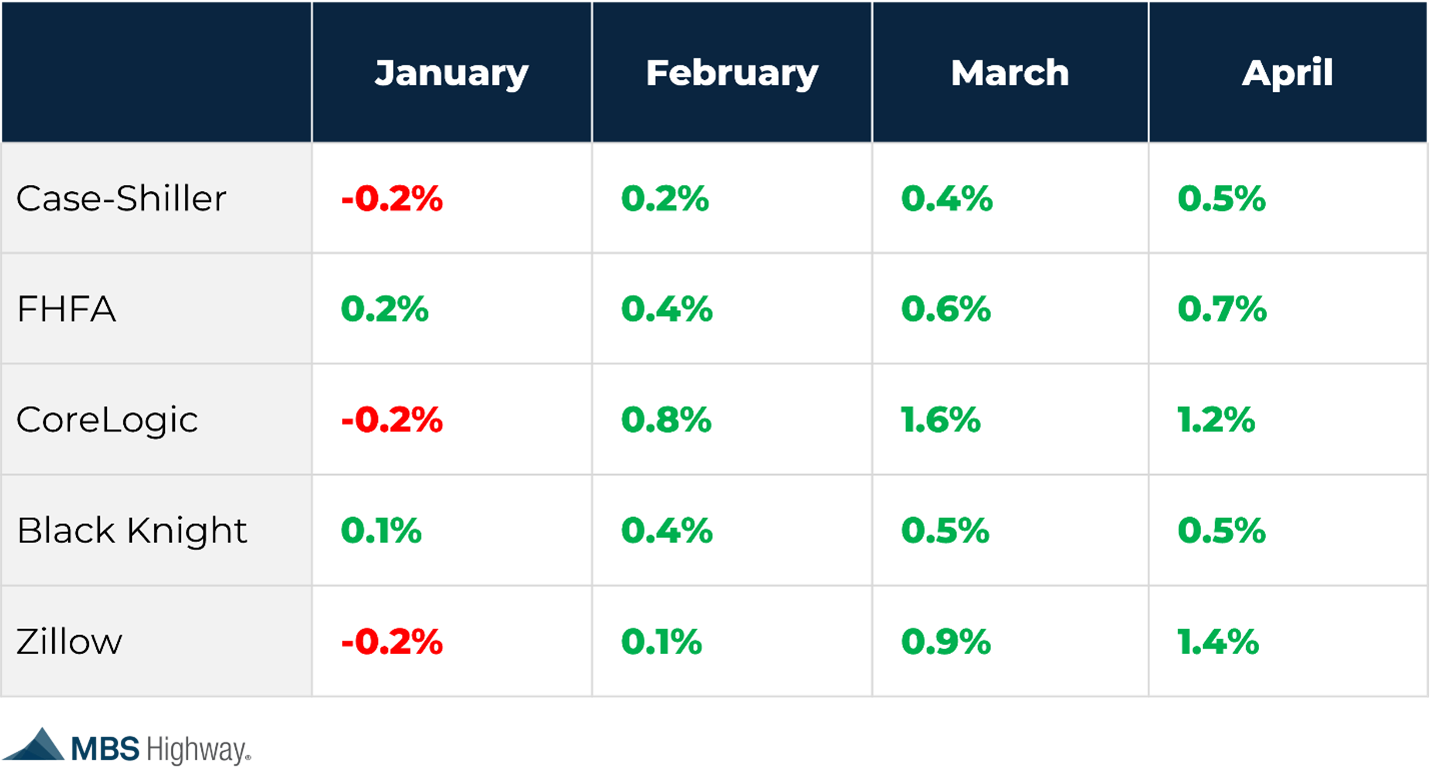Don't Let Short-Term Homebuying Fears Keep You From Long-Term Wealth
Today’s higher mortgage rates, inflationary pressures, and concerns about a potential recession have some people questioning: should I still buy a home this year? While it’s true this year has unique challenges for homebuyers, it’s important to think about the long-term benefits of homeownership when making your decision.
Consider this: if you know people who bought a home 5, 10, or even 30 years ago, you’re probably going to have a hard time finding someone who regrets their decision. Why is that? The reason is tied to how home values grow with time and how, by extension, that grows your own wealth. That may be why, in a recent Fannie Mae survey, 70% of respondents say they believe buying a home is a safe investment.
Here’s a look at how just the home price appreciation piece can really add up over the years.
Home Price Growth over Time
The map below uses data from the Federal Housing Finance Agency (FHFA) to show just how noteworthy price gains have been over the last five years. And, since home prices vary by area, the map is broken out regionally to help convey larger market trends.

If you look at the percent change in home prices, you can see home prices grew on average by just over 56% nationwide over a five-year period.
Some regions are slightly above or below that average, but overall, home prices gained solid ground in a short time. And if you expand that time frame even more, the benefit of homeownership and the drastic gains homeowners made over the years become even clearer:

The second map shows, nationwide, home prices appreciated by an average of over 290% over a roughly 30-year span.
This nationwide average tells you the typical homeowner who bought a house 30 years ago saw their home almost triple in value over that time. That’s a key factor in why so many homeowners who bought their homes years ago are still happy with their decision.
And while you may have heard talk in late 2022 that home prices would crash, it didn’t happen. Even though home prices have moderated from the record peak we saw during the ‘unicorn’ years, prices are already rebounding in many areas today. That means, in most markets, your home should grow in value over the next year.
The alternative to buying a home is renting, and rental prices have been climbing for decades. So why rent and deal with annual lease hikes for no long-term financial benefit? Instead, consider buying a home.
Source: Keeping Current Matters
Home Prices Are Still Rising
Last week, Case-Shiller and FHFA released their home price index numbers for April, and they show another monthly increase in home prices. When looked at alongside the other April reports and comparing to the previous months, it’s clear that housing is still doing well despite high interest rates suppressing the demand for homes.

When you look at all of these metrics together, you can clearly see the acceleration of home price gains that has already happened this year. All month-over-month home price reports have been positive since February, and we are optimistic about good numbers ahead.
If we annualize the Case-Shiller and FHFA numbers – meaning if these trends continue at the same rate throughout the year – we would see annual appreciation of 3% (Case-Shiller) and 7% (FHFA). This pace could accelerate even more if interest rates fall toward the end of the year.
The Bottom Line
If you’re questioning if it still makes sense to buy a home today, remember the incredible long-term benefits of homeownership.
If you would like to know more about your options for purchasing a home, fill out the form below to schedule a consultation with one of our mortgage advisors. They will answer all of your questions and create a detailed loan comparison so you can create a solution that is best suited to fit your needs.





